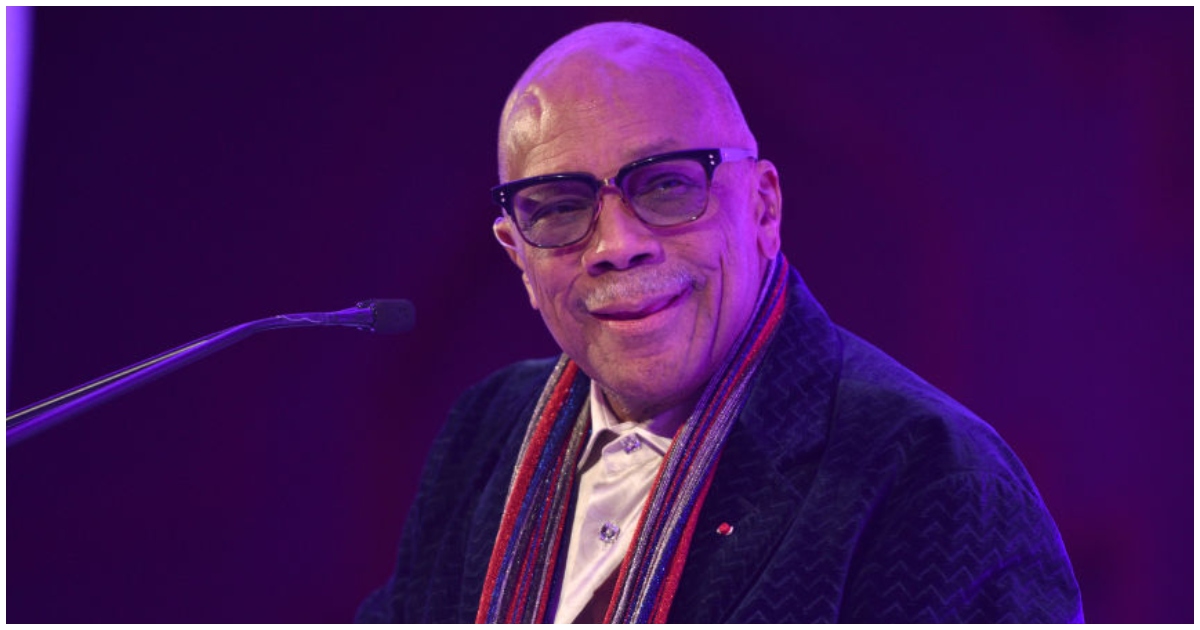Quincy Jones, a legendary figure in music and film, passed away on November 3, 2024, at the age of 91. He was the first Black composer to gain recognition in Hollywood. His incredible career earned him 28 Grammy Awards and led to memorable partnerships with stars like Michael Jackson and Frank Sinatra. Jones’s influence spanned decades, transforming the music industry and inspiring countless artists.
A Journey Through Music and Film
Born in Chicago on March 14, 1933, Jones faced many challenges early in life. His father, Quincy Sr., was a carpenter and semi-pro baseball player, while his mother, Sarah, worked as a building manager. The family moved to Bremerton, Washington, during World War II. It was here that Jones began to explore his musical talents. At just 12 years old, he played the trumpet and sang in a gospel quartet.
His passion for music led him to study at the Berklee College of Music. After completing his education, he landed his first professional gig in 1951 with bandleader Lionel Hampton. Jones quickly realized that the road to success was not easy. He experienced segregation during his travels with the band, which left a lasting impact on him. “You couldn’t stay in white hotels,” he reflected on those times. This experience motivated him to fight for equality in the music industry.
Breakthroughs in the Music Industry
Throughout the 1960s, Jones’s career flourished. He wrote arrangements for jazz icons like Count Basie and Tommy Dorsey. He also produced several hit singles for pop artist Lesley Gore, including “It’s My Party.” His talent did not go unnoticed, and he soon became friends with Frank Sinatra. Together, they created the albums “It Might As Well Be Swing” and “Sinatra at the Sands,” which solidified Jones’s status as a top producer.
Jones’s breakthrough moment came when he ventured into film and television. He became the first Black composer to find acceptance in Hollywood. His work included scores for more than 30 films and hundreds of TV shows. Notable projects included “In Cold Blood,” “The Italian Job,” and the iconic theme for “The Bill Cosby Show.” His Emmy-winning score for the miniseries “Roots” showcased his ability to reach a wide audience.
The Michael Jackson Connection
Jones’s partnership with Michael Jackson changed the music landscape. They first worked together on the soundtrack for “The Wiz” in 1978. Their collaboration led to the creation of “Off the Wall,” “Thriller,” and “Bad.” These albums sold over 100 million copies worldwide. “Thriller” remains one of the best-selling albums in history, largely due to Jones’s innovative production techniques.
In addition to these projects, Jones played a crucial role in the 1985 charity single “We Are the World,” which raised millions for famine relief in Ethiopia. His dedication to social causes reflected his belief in using music as a force for good.
A Legacy of Empowerment and Innovation
Quincy Jones’s influence extended beyond music. He advocated for artists’ rights and encouraged musicians to take control of their careers. His experience with unfair contracts fueled his commitment to change the industry. “If you write a song, the publishing is 50% of that,” he explained, emphasizing the need for artists to understand the business side of music.
In addition to his music career, Jones was an accomplished entrepreneur. He launched Qwest Records and produced successful films, including “The Color Purple.” He also co-created the hit television series “The Fresh Prince of Bel-Air,” which helped launch Will Smith’s career.
Awards and Recognition
Over his lifetime, Jones received numerous accolades. He won 28 Grammy Awards, including a Grammy Legend award. In 2013, he was inducted into the Rock & Roll Hall of Fame. He was also honored with the Sammy Cahn lifetime achievement award and received multiple honorary doctorates. Time magazine recognized him as one of the most influential jazz musicians of the 20th century.
Jones’s life was celebrated in documentaries like “Listen Up: The Lives of Quincy Jones” and “Quincy,” directed by his daughter Rashida. His legacy continues to inspire musicians and fans around the world.
A Personal Life Full of Complexity
Jones’s personal life was as colorful as his career. He was married three times, and all three ended in divorce. He is survived by six children from these relationships. Despite facing ups and downs, Jones remained dedicated to his work and family.
Quincy Jones leaves behind a profound legacy as a musician, producer, and activist. His contributions to the entertainment industry and the fight for equality will not be forgotten.





